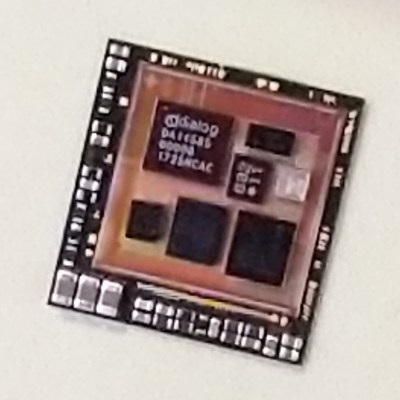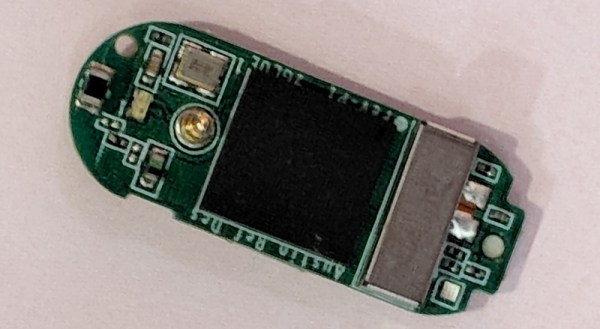Maker Faire is the nexus for all things new and exciting. At the Bay Area Maker Faire this weekend, zGlue introduced a new platform that stretches the definition of custom ICs. Is this custom silicon? No, not at all. zGlue is a platform allowing anyone to take off-the-shelf ICs and package them into a single module, allowing you to build a smaller PCB with a shorter BOM.

The idea behind zGlue is to take all of the fun chips available today from accelerometers to tiny microcontrollers with integrated wireless and put them on a tiny, tiny board that is then encapsulated. At Maker Faire, the zGlue team was busy demonstrating their cloud-based platform that allows anyone to add off-the-shelf chips to the zGlue stack and assemble it into a custom module.
Of course, every new tech startup needs a demo, so zGlue has come up with zOrigin, a small fitness tracker that features a suite of chips crammed into one encapsulated package. The chips included in the zOrigin ZiP package are a Dialog DA14585 microcontroller with BLE, an Analog Devices heart rate monitor, a crystal, a bit of Flash, a power monitoring IC and an accelerometer. There are also thirty passives stuck in this single chip, and with a battery, some LEDs, and a vibration motor, this chip becomes a complete solution for wearable fitness trackers.
Shoving a bunch of chips into a single module is nothing new; most of wireless modules available on the market are just that. NextThingCo experimented with a Linux computer on a chip with the GR8 module, again, just a bunch of chips slathered in epoxy. The most visible benefit of custom modules is probably the Octavo System on a Chip that became the PocketBone.
While the ability to create custom modules from off-the-shelf chips is nothing new for manufacturers, the ability for anyone to create their own custom ICs has remained out of reach for the Average Joe hardware hacker. zGlue is the solution to this problem, and the prices seem fairly reasonable, starting at around $100 for the initial R&D.











